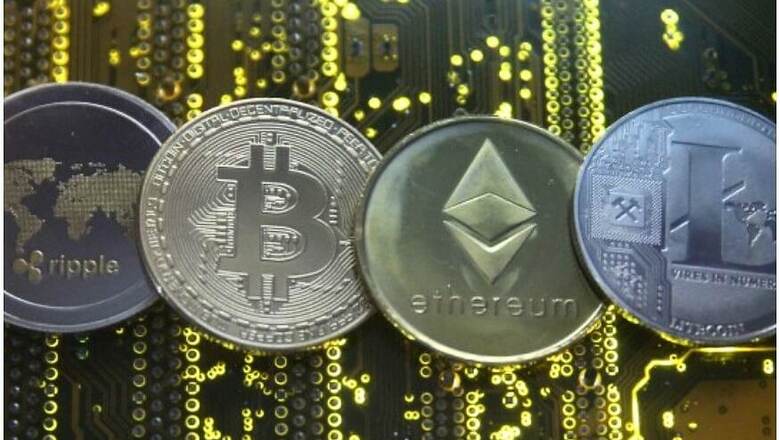
views
Beijing: China plans to launch its own digital currency to stay ahead of the global competition with its central bank approving proposals to conduct trials in some cities, official media here reported on Tuesday.
China's central bank - the People's Bank of China (PBC) - has stepped up efforts to roll out its Digital Currency Electronic Payment (DCEP) as it seeks to stay ahead of the competition among central banks around the world and help preserve financial sovereignty, state-run Global Times reported.
The bank is set to conduct trials of the digital currency in cities such as tech hub Shenzhen in the country's southern Guangdong Province, it said.
The initial test, set at the end of this month in Shenzhen, will involve some of the largest banks in the country and telecom carriers, the Times reported, quoting the Caijing Magazine. The test will be expanded to more areas next year, it said.
Similar tests are also expected to be conducted in Suzhou, China's estern Jiangsu Province, the report noted. Domestic internet giants Alibaba and Tencent will also participate in the trials, it added.
The PBC is accelerating the launch as competition heating up among central banks around the world to leap ahead with digital currency, expected to affect a wide range of sectors ranging from financial to retail and trade, the report said.
On Wednesday, Francois Villeroy de Galhau, governor of France's central bank, announced that the bank will conduct a test of a digital currency and launch a call for projects before the end of the first quarter of 2020.
Cao Yin, vice director of the Advanced Research Institute of Blockchain under Yangtze Delta Region Institute of Tsinghua University, Zhejiang, said that in 2020, digital currency competition will heat up not only among central banks and governments but also multi-nationals like Facebook and large cross-border financial institutions.
"In particular, PBC has accelerated the schedules on the DCEP after Facebook announced its Libra global currency, out of concerns that Libra might take the initiative in the global crypto token contest," Cao told the daily.
In June, Facebook announced the Libra project, which aims to take on government-issued currencies.
According to Cao, Libra, backed by Facebook's 2.7 billion user base and independent from all existing financial infrastructures, would trigger risks of financial capital flow. Bitcoin sparked the same concern in 2016.
"China needs to own equivalent 'monetary instruments' to consolidate its financial sovereignty," Cao said.
Tu Yonghong, a professor at the International Monetary Institute at Renmin University of China in Beijing, said that the DCEP has an advantage over other company-issued digital currencies like Libra in that it is backed by the Chinese government.
"By launching a digital currency earlier than other countries, the PBC will be able to set rules related to currency's cross-border clearing and payment system," Tu said.
Chinese experts said the launch of DCEP will accelerate the yuan's clearing, attracting wider adoption of the currency. In September, US media CNBC quoted overseas company representatives as saying that launch of the DCEP would enhance the yuan's global distribution.



















Comments
0 comment